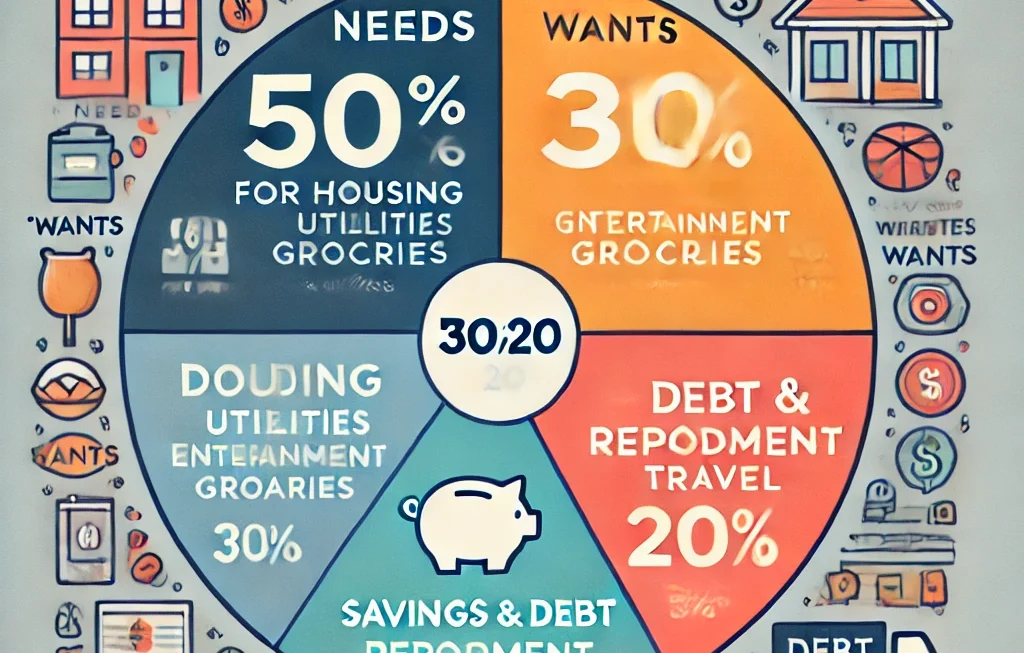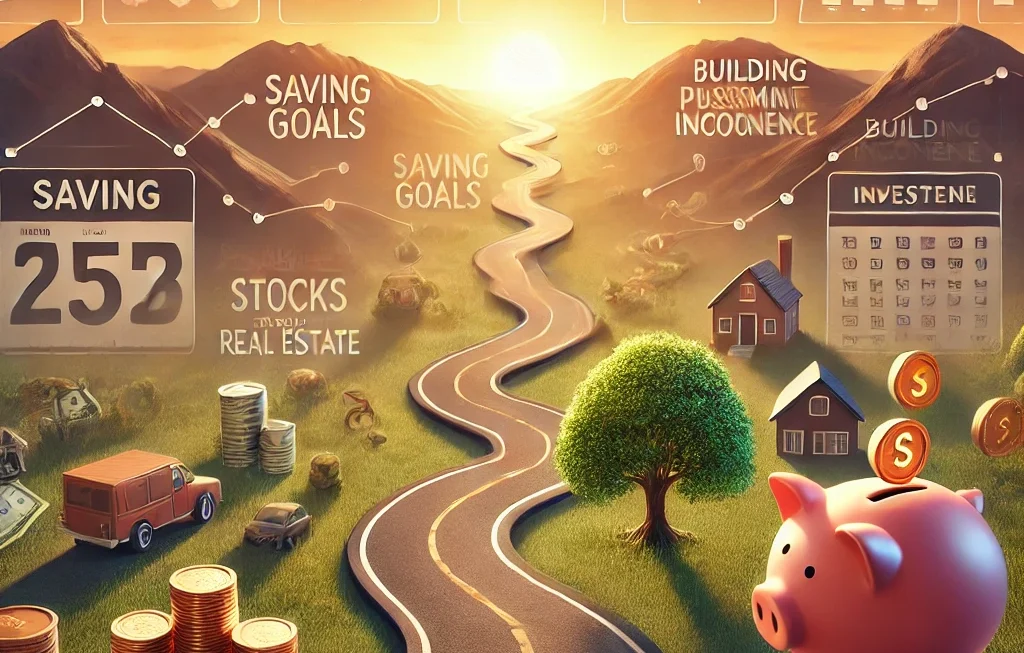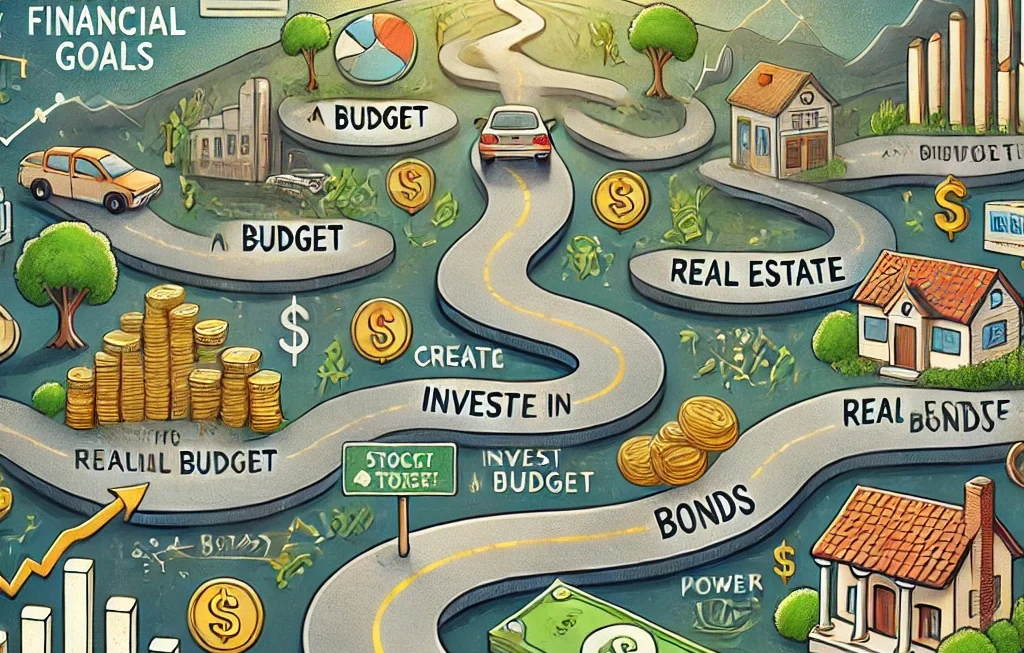Financial independence is the dream of many, but achieving it in your 30s requires careful planning, disciplined saving, and smart investments. When you reach financial independence, you gain control over your time and resources, allowing you to focus on what truly matters. While the journey isn’t easy, it’s achievable with the right approach.
The Importance of Financial Independence in Your 30s
In your 30s, the decisions you make regarding money can set the tone for the rest of your life. Achieving financial independence at this stage means you’re no longer tied to a paycheck, and you have the freedom to explore passions, travel, or even retire early. It’s more than just having a comfortable bank balance—it’s about having the option to live life on your own terms. This decade is critical for taking advantage of the power of compound interest, aggressive saving, and making wise career and investment choices.
What Financial Independence Really Means
Financial independence doesn’t necessarily mean you’ll never work again. It means having enough assets—whether through investments, real estate, or other income streams—that you can cover your living expenses without relying on a traditional job. Financial independence could mean early retirement, but it can also mean pursuing a career you’re passionate about without worrying about the paycheck. The key is to create a system where money works for you, rather than you working for money.
Setting SMART Goals for Financial Independence
The first step to achieving financial independence is setting specific, measurable, achievable, relevant, and time-bound (SMART) goals. For example, you might aim to save $500,000 by the time you’re 40, or you may want to pay off all debt by 35. When you establish clear financial objectives, it’s easier to track your progress and make adjustments along the way.
Minimizing Expenses Without Sacrificing Quality of Life
Living below your means is a fundamental principle of financial independence. This doesn’t mean you have to cut out all the joys in life. Instead, focus on cutting unnecessary expenses and being mindful of where your money goes. Opt for experiences over material goods, choose a more affordable car, and be selective about big purchases. By reducing your financial outflow, you increase the amount you can save and invest for the future.
How to Leverage Compound Interest for Early Financial Freedom
The earlier you start investing, the more time your money has to grow, thanks to compound interest. By reinvesting the returns you make on your initial investments, you create a snowball effect where your money begins to grow exponentially. Compound interest is most powerful over long periods, so starting in your 30s—or even earlier—is crucial. Consistently contributing to retirement accounts or other investments can turn even modest contributions into a substantial nest egg by the time you reach your 50s or 60s.
Why Relying on One Source of Income is Risky
Financial independence requires multiple streams of income. While a traditional 9-to-5 job can provide stability, relying on it alone can be risky. What happens if you’re laid off or the industry you’re in faces disruption? By diversifying your income—through freelance work, side hustles, or investments—you protect yourself against financial downturns and accelerate your path to independence.
How to Build and Maintain a Robust Emergency Fund
An emergency fund acts as a financial safety net, protecting you from unexpected expenses like medical bills or car repairs. It’s generally recommended to save enough to cover 3-6 months of living expenses. This fund should be liquid, meaning it’s easily accessible, so you’re not forced to dip into long-term investments. Building this cushion gives you peace of mind and helps prevent setbacks on your journey to financial independence.
How to Pay Off Debt Efficiently
Debt, particularly high-interest debt, is one of the biggest obstacles to financial independence. Focus on paying off the highest-interest debts first, such as credit card debt, using the “debt avalanche” method. If you’re struggling with motivation, the “debt snowball” method, which prioritizes smaller debts first, can give you psychological wins that propel you forward. The faster you eliminate debt, the more money you’ll have available to save and invest.
Best Stock Investment Strategies for Beginners
Investing in the stock market can be intimidating, but it’s one of the most effective ways to grow your wealth. Beginners should focus on long-term, low-cost investments like index funds, which provide exposure to the entire market and have lower risk compared to individual stocks. Diversification is key—don’t put all your money in one stock or sector. By regularly contributing to your investment portfolio, you can take advantage of market growth while minimizing risk through diversification.
You Can Also Read : How to Reach Financial Independence with Smart Budgeting
How to Start Investing in Real Estate in Your 30s
Real estate is another excellent vehicle for wealth building and achieving financial independence. If you have enough savings for a down payment, consider investing in rental properties, where you can generate passive income. Alternatively, real estate investment trusts (REITs) offer an easier way to get into real estate without the hassle of property management. Research is crucial, so be sure to understand local market trends, property management, and cash flow potential before making a purchase.



